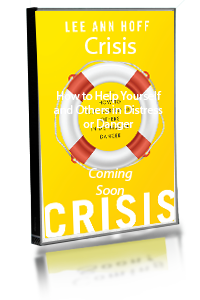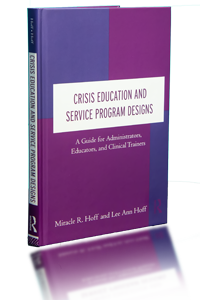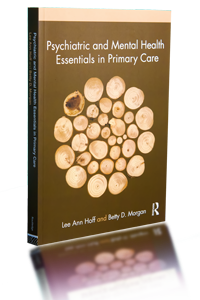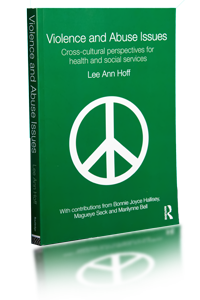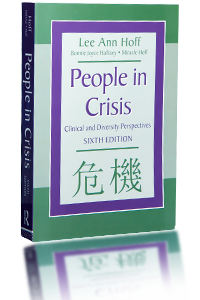
This book spells out what parents, teachers, police, and frontline health and social service workers should know about managing stressful and potentially dangerous events in everyday life. It features crisis care examples from real life stories, how to avoid common risks and stay safe during crisis episodes (for example, calling a crisis hotline), and when to seek help from mental health and crisis or trauma specialists. The book shows how people can learn and grow through stressful experiences, and avoid the risks and danger of suicide and violence toward others in life-threatening or chaotic situations.
It aims to address what parents, teachers and others ideally should know and what should be done to recognize and prevent tragic death at school, home, and on the street. The book addresses a range of stressful events across the life cycle that could entail risk to one’s own or others’ lives. Drawing on author Hoff’s text, People in Crisis: Clinical and Diversity Perspectives (6th ed. Routledge), it is geared primarily to lay readers and front line generalists (primary care physicians, nurse practitioners, and physician assistants)) who are interested in learning about the opportunity and danger of crisis. Through real life examples, it will portray people’s resilience and healthy coping during typical stressful occasions from birth to death, and emphasize the importance of prevention and social support to not only avoid disastrous crisis outcomes, but also show how such intervention can lead to healthy coping and growth.
The everyday person, who may be either on the brink oneself or concerned about someone who is, family and friends, and professionals on the front lines who may be called on to help—police, physicians, nurses, case workers—need to know the basics of life crises and how to navigate available resources. Important information is readily available for people at risk of heart disease, for example, but often is not as accessible for persons in acute emotional crisis.
Moving beyond books that address a single type of crisis (e.g. death of a child; diagnosis of a serious illness; sexual assault), this book’s focus is on helping readers recognize common signs of crisis across a range of life challenges. It will show how unexpected events, such as surviving a fatal car crash, that intersect with life cycle transition points (i.e., adolescence, mid-life, old age) can leave people more vulnerable to slipping into crisis—especially when lacking one’s usual social supports. Through extensive use of stories, the book aims to help people identify and respond appropriately to the typical feelings and behaviors in impending or life-threatening crisis. For example, some people in acute crisis express a fear of “going crazy” or have thoughts of suicide or violence toward others. Readers will learn that the high anxiety typical of crisis is normal, not usually a sign of mental illness. Whether or not critical life events result in crisis depends on the type, timing, and interpretation of the event, the person’s life cycle development phase, history of healthy coping, and available timely support. In sum, the book’s central theme is crisis as both danger and opportunity.
ENDORSEMENTS
"With practical advice, clear guidance and examples, Crisis is a valuable advancement and exceptional resource for crisis care today." Matthew De Valiant, BSc, International Violence Prevention Consultant
"While crises are commonplace, a crisis isn't inevitable. Through case studies and research, Hoff shows how to avert, identify, and manage the negative impacts of major life events. How much better prepared I would have been during crises in my own life if I had read this book." Susan Forward, Healthcare Proxy
"Lee Ann Hoff has again contributed significantly to the science and art of crisis response and counseling in her text, Crisis... the materials covered are on target and exceedingly helpful for professionals assisting persons experiencing a crisis." Dr. Robert C. Nielsen, Professor, Counselor Education, North Dakota State University
"In the challenging health practice world, Lee Ann Hoff's thought-provoking guide helps us communicate, work and grow as individuals. Crisis is a beacon of exemplary practice and ethics--a life's work that reaches out to interdisciplinary teams." Evelyne Malfroy-Camine, Nurse Practitioner for Medical Home Without Wallss
Press Release
DEDICATION
CRISIS: How to Help Yourself and Others in Distress or Danger
(in production with Oxford University Press, New York—release: September 1, 2014)
To VICTIM/SURVIVORS of the April 15, 2013 BOSTON MARATHON bombing, first responders and their healers, and to millions of others injured or killed in disasters of human origin, war, terrorism, and horrific violence worldwide over centuries and, tragically, continuing apace.
On April 15, 2013 I was midst drafts of this book’s Chapters on victimization and perpetrators of violence. The terrorist attack left me nearly numbed out of productive work as I struggled to write meaningfully for others while following the terrorist attack in the Boston neighborhood where I lived for 24 years after moving to Boston in 1979.
In remembrance of those who died in that terrorist attack and the millions of others in ethnic, religious, and political strife across our troubled world, and to make meaning out of the Boston Marathon bombing, I have arranged for this violence prevention goal through universities and colleges where I have affiliations.
A percentage of royalties that may accrue from this book will be dedicated to support scholarships for students with their potential for making a difference on the tragic and continuing saga of global violence. To some extent, this plan alleviates my flashes of feeling powerless in the face of so much violence worldwide.
Scholarship recipients will be eligible with this provision: Awardees must successfully complete at least one university/college course, directed study, or conduct a research or training project on Crisis, Violence and Abuse Issues grounded in a Human Rights Perspective and the principle of Education as Prevention and Intervention. Priority for scholarship eligibility will be given to students disadvantaged by poverty, gender, race, ethnicity, sexual identity or religion-based hatred. The plan will be augmented and continued in my estate planning. Persons interested in joining this prevention cause may contact info@crisisprograms.org
This plan is rooted in my education and research on social justice issues, crisis care, plus the healing process from vicarious traumatization in caring for victims, writing about crisis and violence, and periodic flashbacks to my personal trauma history.
PEACE !!
Lee Ann Hoff
Boston, Massachusetts
February 2014
